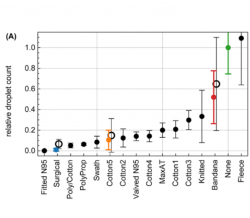Why is a drug coughtail NOT an accepted therapy for Covid? Besides lawyers hanging around looking for wrongful death speculative lawsuits?
Because there is very little evidence for it. Promoting ineffectual or unproven treatment has consequences. There is more than monetary costs. Look at the US which now has
stockpiled 63 million doses of HCQ without a solid indication, whilst we had a shortage here in Oz. So please don't tell me there is no downside.
The science behind invermectin is a very interesting read. A preprint article on Apr 14, claiming from a database from 169 hospitals in Asia, Europe, Africa, North America and South America and 1,900 Covid-19 patients. The first study reported the outcomes of 52 patients who had received ivermectin. At the time, ivermectin was not being widely discussed as a potential Covid-19 treatment. Yet the study said patients around the world had already been receiving it. The study also included data from three patients in Africa who, as of 1 March, were on mechanical ventilation and receiving ivermectin. But there were two patients in the entire continent alone at that time, let alone people on ventilators.
On 2 May, two weeks after the study appeared online, a doctor in Peru wrote a white paper for the government about the use of ivermectin to treat Covid-19, heavily citing the preprint Surgisphere study as evidence. Peru reported its first Covid-19 case on 6 March, but by the beginning of May it was in a state of emergency, having recorded 42,000 cases and about 1,200 deaths. Less than a week after the white paper was published, the Peruvian government included ivermectin in its national Covid-19 therapeutic guidelines.
In May, the same 2 authors, vascular surgeon Dr Mandeep Mehra and Surgisphere founder and chief executive, Dr Sapan Desai published a
study in the New England Journal of Medicine, which was eventually withdrawn on the 4th of June. The same authors published another
article in the lancet on the 22May, which was also subsequently discredited and retracted on June the 5th.
In April researchers from Monash University released the findings from an in vitro (lab based) invermectin trial. Those researchers found if you incubate some cells with both the virus and the drug, you could reduce the replication of the virus 5,000-fold and it disappears 48 hours after incubation.
But there was a catch that was not widely reported. To treat river blindness (secondary to a parasitic worm), people are generally prescribed a 3mg tablet for every kilo of bodyweight. The Monash study found that to have any hope of achieving the same result they had found in a test tube, individuals would need to consume up to 1kg of the drug at once, which just might cause problems.

Look, I understand your frustration, we all want a solution to this problem. I deal with well intentioned serious complications everyday. Just because you can't see the risk, it doesn't mean it's not there.
TM





















